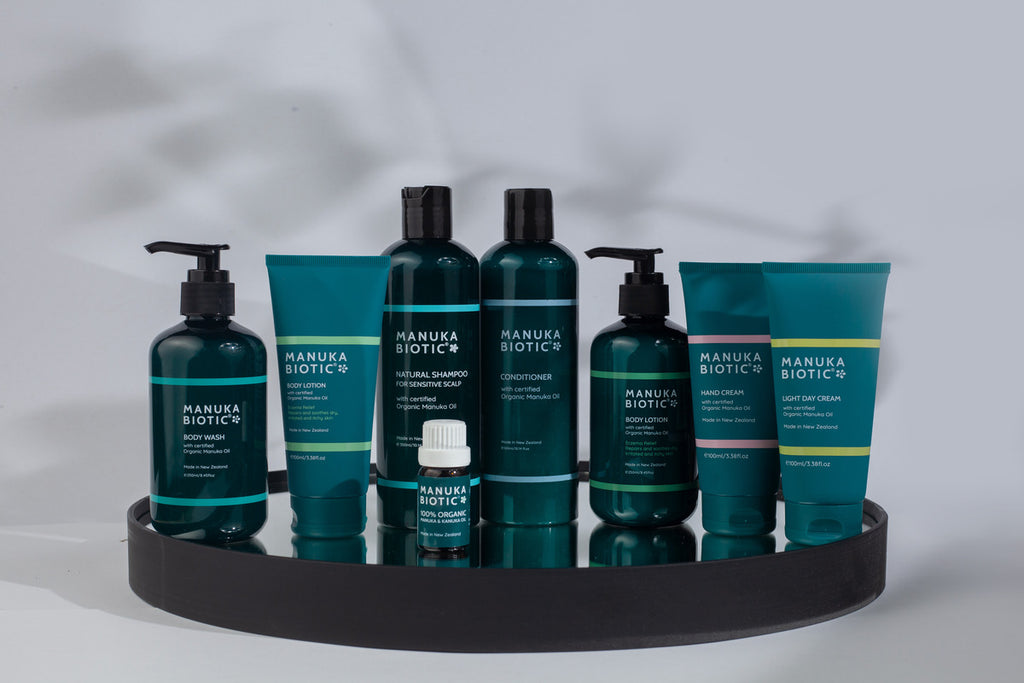Why is the skin barrier important for Eczema, Rosacea, and other itchy-prone skin conditions?
Delving into the intricacies of the skin barrier is crucial, especially for individuals dealing with conditions like eczema and rosacea. This blog aims to examine the essence of the skin barrier, understanding why its impairment poses a critical concern for those experiencing itchiness, and recognising its central role in effectively managing itchy-prone skin conditions.
What is the Skin Barrier and Its Protective Role?
Most discussions about the skin barrier revolve around the stratum corneum, the top layer of the epidermis, also known as the acid mantle – the outermost layer acting as a protective shield. The skin consists of three main layers: the epidermis (outer layer), the dermis (comprising collagen, elastin, blood, and nerve supply), and the subcutaneous layer, which serves as the final barrier between the skin and muscle. Predominantly, the skin barrier, encompassing the stratum corneum or acid mantle, functions as the body's primary defence. This protective shield, comprising the outer layer (epidermis), collagen-rich dermis, and the subcutaneous layer as the ultimate frontier, plays a vital role in safeguarding against external stressors.
Why is the Skin Barrier Important for Eczema, Rosacea, and Itchy-Prone Skin?
The skin barrier plays a dual role crucial for itchy-prone skin conditions:
- Protection: Guards against chemicals, pollutants, and UV radiation.
- Moisture Retention: Prevents transepidermal water loss, maintaining elasticity and preventing dryness. Inadequate hydration compromises the barrier's protective function against external stressors.
Skin Barrier Impairment: Identifying the Consequences
An impaired skin barrier can manifest as:
- Chronic skin irritation, rosacea, eczema
- Itchy, dehydrated dry skin
- Skin infections and delayed wound healing response
- Hyperpigmentation
Factors Damaging Your Skin Barrier
Impairment is often a result of various factors, including:
- Environmental stressors: pollution, sun, wind, smoking
- Incorrect Product usage: Overuse or misuse of cleansers, exfoliants, retinols
- Lifestyle choices: Lack of sleep and poor nutrition
Tailored Tips for Skin Barrier Restoration
Addressing skin barrier damage requires a personalised approach:
Expert Insights: Understanding Eczema and Skin Barrier Dynamics
The Genetic Component
For those grappling with eczema, understanding the genetic aspect is pivotal. Up to 30% of eczema patients exhibit mutations in the gene coding for filaggrin, a key protein vital for skin cell structure.
Lipids and Eczema
In individuals with eczema, variations in skin lipids, particularly decreased ceramide levels, contribute to dryness, irritation, and compromised skin function.
Expert Recommendations for Eczema Management
Leading dermatologists prescribe a three-pronged approach to eczema management and skin barrier fortification:
1. Moisturising
Regular moisturising enhances barrier function. Thick ointments or creams Like the Eczema Relief Body Lotion containing ceramides or vitamin B3 are recommended.
2. Minimising Exposure to Triggers
Identifying and avoiding common eczema triggers, including allergens and irritants, is crucial to breaking the cycle of skin barrier dysfunction.
3. Bathing for Skin Barrier Repair
Gentle bathing or showering with a Calming Body Wash, followed by immediate a rich moisturising Eczema Relief Body Lotion, aids in removing irritants and promoting skin barrier repair.
Seeking the Right Products for Your Itchy Skin?
If you're on the journey to find the perfect products for your itchy skin condition, look no further! Read more about our tailored solutions for Eczema, Rosacea, and itchy-prone skin here. Our core blogs provide in-depth insights and recommendations to help you achieve optimal skincare.
Sources:
https://nationaleczema.org/blog/what-is-my-skin-barrier/
https://medlineplus.gov/genetics/gene/flg/#conditions














